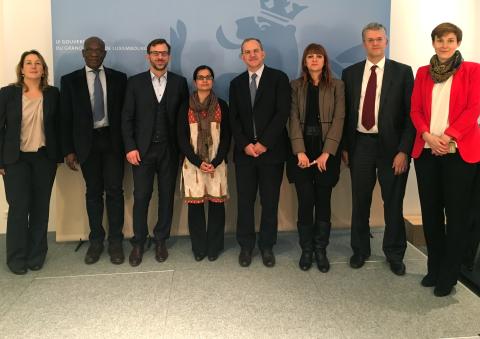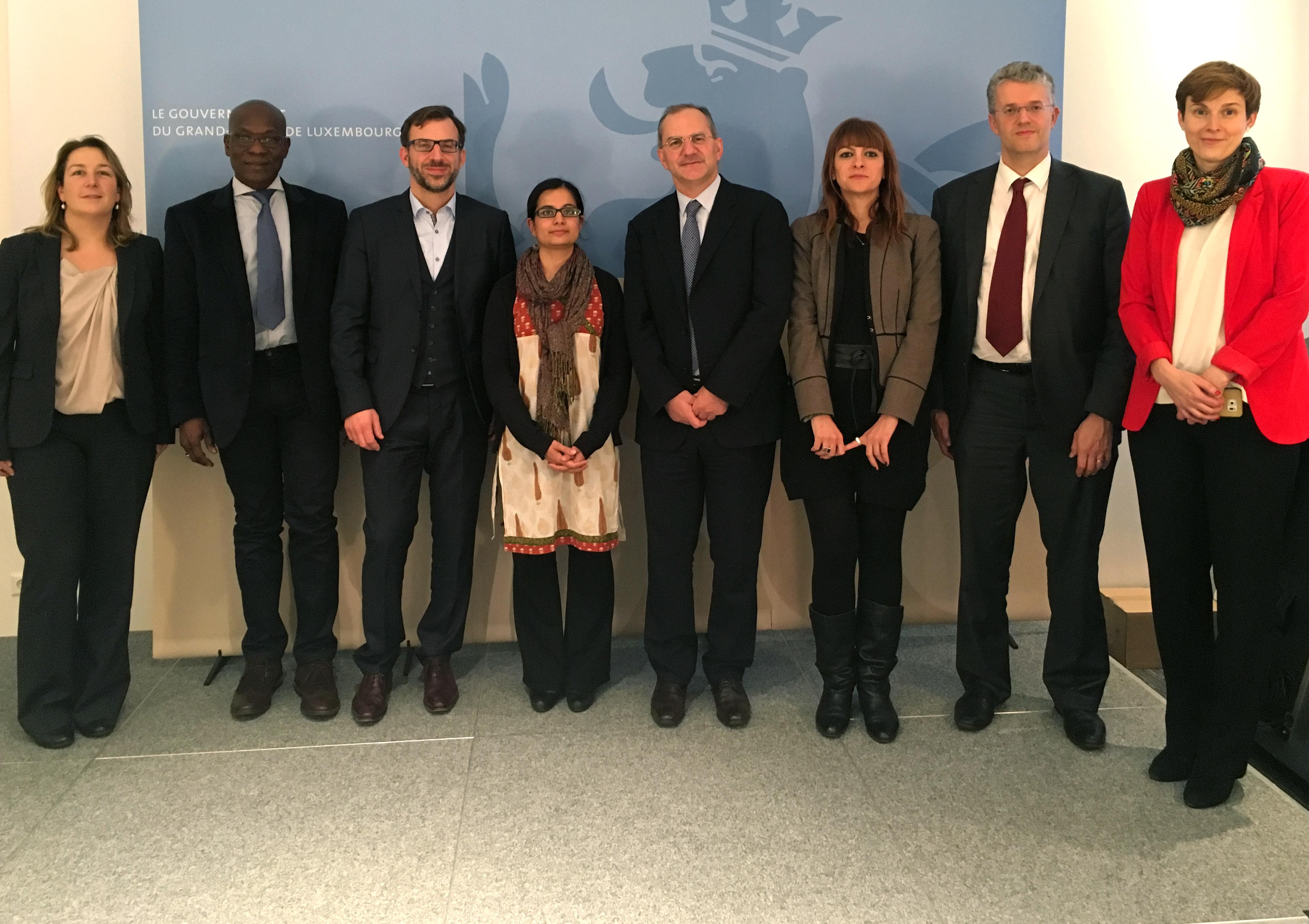
In December 2016, representatives from the Luxembourg Ministry of Foreign Affairs Department of Development Cooperation and from the World Health Organization (WHO) secretariat met in Luxembourg for their bilateral meeting, an annual appointment set to touch base and jointly assess the status of collaborative projects. A long history of cooperation unites WHO and Luxembourg, a country that has long been one of the most generous donors in development assistance and cooperation.
Despite its small geographical size, Luxembourg is an economic force and an exemplary contributor to global health. This is especially true in relation to WHO, to which it contributes as a donor through the so-called compulsory assessed contributions (a requirement of all Member States) as well as through voluntary contributions to numerous and diverse programmes. By means of voluntary contributions, countries can support specific WHO priorities in a range of different areas of work or targeting various countries and regions. The Luxembourg ratio of voluntary to assessed contribution places the country at the top rank among the 30 voluntary contributors to WHO.
In 2013, prompted by its development and global health vision, Luxembourg entered into a collaborative agreement with WHO to support universal health coverage through the EU-Luxembourg-WHO Universal Health Coverage Partnership (UHC-P). The three main pillars of the UHC-P are: (1) policy dialogue on national health policies, strategies and plans, (2) health financing, and (3) effective development cooperation. 28 countries currently belong to the partnership, six of which are directly funded by Luxembourg: Burkina Faso, Cape Verde, Mali, Niger and Senegal, and Lao PDR.
Luxembourg’s funding to the UHC-P is extremely flexible, which makes it stands apart from many other donors to WHO. Policy dialogue on health is not a linear concept with a universal approach; rather it is iterative and must be grounded within the national context in order to bolster the success of the UHC-P.
This unique characteristic of Luxembourg’s funding is in line with the UHC-P philosophy that aims to take on national roadmap activities that are not usually addressed by the majority of donors. This approach is appreciated by beneficiary countries and has allowed health systems strengthening activities to shift onto the priority list of many Ministries of Health.
The Luxembourg-WHO bilateral meeting has provided a unique opportunity for jointly assessing the UHC-P´s activities and progress, as well as reviewing future priorities and goals. One such ambition for the UHC-P, at the moment, is to broaden its geographic scope towards the currently uncovered WHO Americas (AMRO) region. There is a willingness from both sides to do so, and concrete actions on this front were discussed; the topic will be re-opened during 2018 bilateral negotiations.
Luxembourg and WHO also explored potential synergies between the works of the UHC-P, focused on health systems strengthening, and the new WHO Health Emergencies Programme. Luxembourg was positive about WHO’s efforts to bring convergence to the health system and emergency sides to craft an emergency preparedness agenda. “Bringing health systems and emergency programmes closer together is a necessity that WHO has been acknowledging for a long time and that should be considered both at the institutional and country levels”, said Dr Amine Kèbè, the WHO Portfolio Manager from the Coordinated Resource Mobilization Unit within the Office of the Director-General in Geneva, “and I think that something has been already implemented moving in these directions, in particular during the recent Ebola crisis in West Africa.”
A combination of cultural values, historic traditions and favourable socio-economic conditions may explain why Luxembourg has been a significant donor and partner for WHO´s humanitarian action. “Whenever they give”, said Dr Kèbè, “they feel it is insufficient and they aim to help more. People used to associate Luxembourg to its small geographical size – yet it always achieves a big impact through its development aid policy. It is probably something that is deeply rooted in their conception of life and I am sure that if the world had characteristics like the ones Luxembourg has, we would be in a much better global situation now.”
